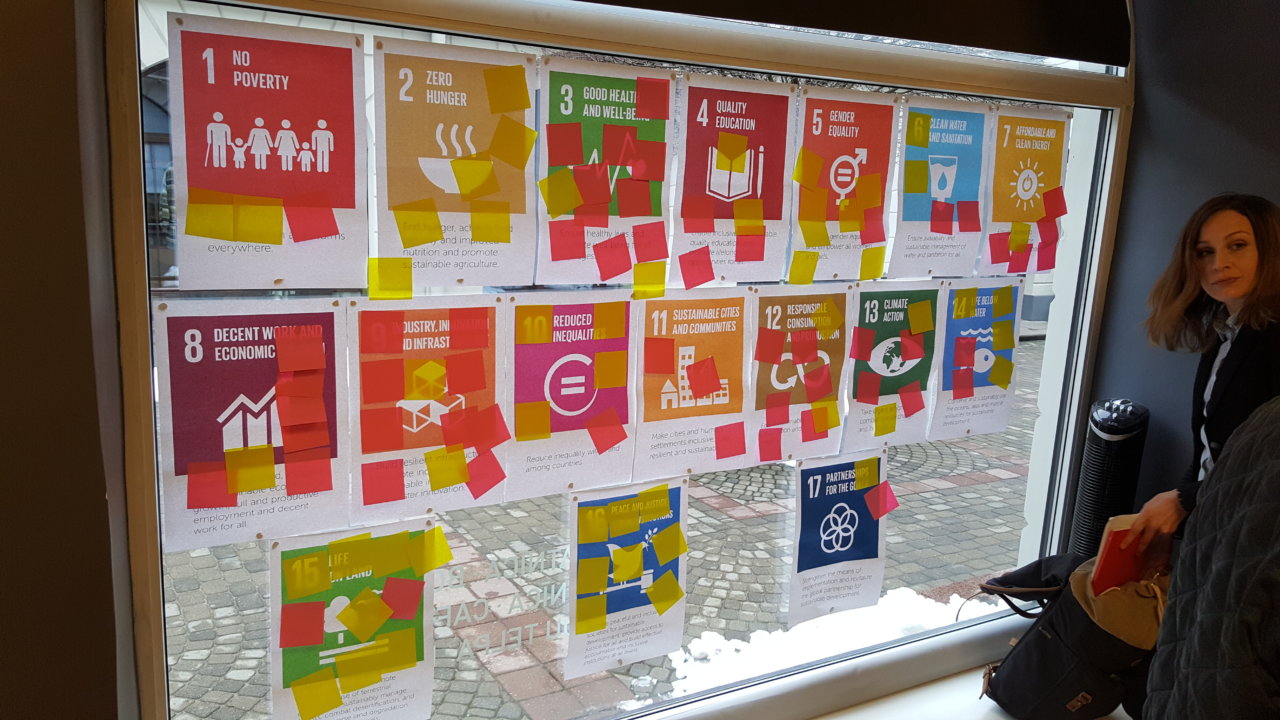ONGOING
CAMS – Climate Adaptation and Mitigation Synergies

AIMS:
The CAMS – Climate Adaptation and Mitigation Synergies in Energy Efficiency Projects platform aims to capitalize results of ongoing EU INTERREG and other EU energy efficiency projects. The negative impacts of climate change upon human and natural ecosystems can be minimised by substantial reductions in greenhouse gas emissions. High energy consuming housing and production sectors still leave a major carbon footprint. The CAMS Platform improves energy efficiency measures by aligning research, recommendations, audits and investments from 11 projects across the Baltic Sea region. In particular, the know-how comes from Interreg Baltic Sea Region’s EFFECT4Buildings, LowTemp, AREA 21, Co2mmunity, Act Now, BEA-APP, RDI2CluB; but also HORIZON 2020’s HERON, SIM4NEXUS, ENLARGE, and ARCEE funded by EuropeAid.
Projeck kick-off meeting took place in Tallinn on 20th of September, 2019.
COMPLETED

AIMS:
CASCADE aims to improve the capacity to understand, assess, and treat current and future climate change related risks on the local level, focusing on the particular in Baltic Sea Region (BSR) conditions.
The climate is becoming increasingly unpredictable and extreme, requiring new innovative tactics to prevent disasters, and address risks. Risks related to climate change are not only the concern for professionals engaged with sustainable development. It is becoming more evident each year that climate change is an emerging security threat, and a field in need of multi-level risk governance. The unique project will increase practical risk management capabilities of local authorities in the Baltic Sea Region, as it brings together local administrations and civil protection practitioners, experts at universities and companies, national civil protection authorities and international bodies to achieve its goals. The project will seek to improve urban resilience in cities and towns, as well as the overall macro–regional resilience. The expected outcome of CASCADE is to adapt existing risk assessment methodology to the climate change context and tailor it to the local level.
This methodology will be used in a training course for city officials, responsible for civil protection. If successful, the training can be replicated by all BSR countries.
Furthermore CASCADE initates a region – wide policy dialogue on the UN Sendai Framework for Disaster Risk Reduction as an effective platform for cross – sectorial cooperation between different levels of governance and for greater policy coherence on climate risk assessments.
MAIN FACTS:
Funding Programme: DG ECHO (European Union Civil Protection and Humanitarian Aid)
Duration: 24 months (1.1.2019–31.12.2020)
Budget: 850 871 euro
Priority: Climate adaptation and Urban Resilience
Lead Partner: City of Turku / Southwest Finland Emergency Services
Project coordination: Miikka Toivonen (miikka.toivonen@turku.fi)
A Flagship project of the EU Strategy for the Baltic Sea Region under Policy Area Secure
OUTCOMES:
An online tool for integrated climate change and disaster risk reduction management
Guidelines for local level public administration on how to operationalize the proper risk treatment options
Training courses for the target groups, i.e. City officials responsible for civil protection in municipalities, city planners, architects, spatial planners, etc.
Policy dialogues between local, national, macro-regional, and international actors to
– Mainstream climate risk assessment into management and policy planning on the national and local level to
– ensure coherence of relevant policies in the macro-region, as well as to
– ensure sustainability and ownership of the project’s results through anchoring the results in the relevant policy level, and with the relevant stakeholders
PUBLICATIONS:
Overview of climate risk drivers, hazards and consequences
The Role of Local Governments in Adapting to the Climate
The Sendai Framework in the Baltic Sea Region
Project website: http://www.cascade-bsr.eu/
BSR WATER Platform
![]()
AIMS:
The project aims to enhance cross-sectoral cooperation in smart water management by providing a possibility for transnational experience exchange, sharing of good practices and solutions, as well as delivering comprehensive overview of the current and future regional policy. Platform brings together experts representing diverse projects that have generated through transnational cooperation many replicable as well as unique solutions, covering broad variety of water-related issues (smart nutrient management and sludge handling, storm water management, domestic and industrial wastewater treatment, manure management and energy efficiency).
MAIN FACTS:
Duration 1 October 2018 – 31 March 2021
Budget € 1,1 million
Funding Interreg BSR Programme 2014 – 2020
Lead partner: Union of the Baltic Cities Sustainable Cities Commission, FI
Contact person: Agnieszka Ilola, agnieszka.ilola@ubc.net
Online tool- platform for sharing information Smart Water Hub
Regional palette of solutions to recycle nutrients and other valuable components
Policy briefs on micropollutants in waste water and sewage sludge
Guidelines on integrated model for Water-Sludge-Energy cooperation
Regional and national recommendations for integrated storm water management (ISWM)
Project website: https://www.bsrwater.eu/
